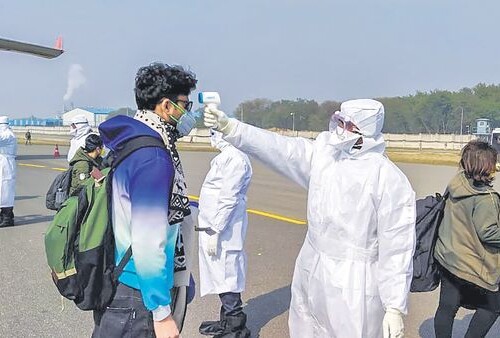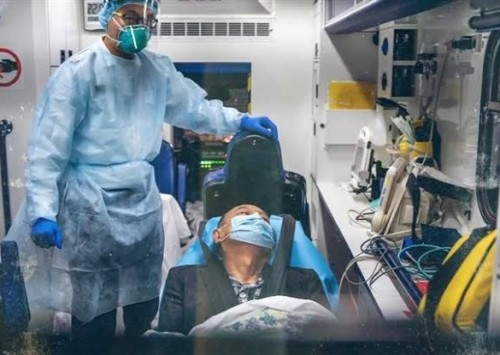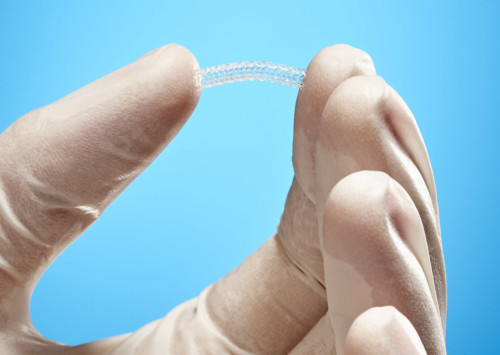Coronavirus scare: Masking the nation
With over 100 confirmed cases of coronavirus in the country and two deaths, the scare of the virus has triggered a rising demand for face masks in India even as the government struggled, initially, to send out the right message.
The growing surge in COVID-19 (2019-nCoV) cases in India has led to a panic reaction by millions of Indians as they rush to buy face masks, leading to an extreme shortage and profiteering by vendors as prices of even basic masks have jumped multifold. All the while, the key fact that the mask is hardly a protection against contracting the disease remains blurred amongst the vast majority of Indians.
From the well-educated and well-to-do executives and commuters in metros or suburban transport to rickshaw drivers, everyone seems to be sporting a face mask. As a result of panic buying, prices of masks have shot up by as much as 300 pc in the last few weeks.
“There are many times that we run out of all the masks. I even had to call the old dealers to provide us new masks and sanitisers”, Parvinder Bisht who owns a pharmacy in New Delhi tells Media India Group. He added that “the surgical masks that were earlier sold for INR 10 are now being sold at four times the price and the N95 masks which usually were available for INR 150, now range between INR 500-1000.
Profiteering is just one of the unwanted side-effects of the viral scare. Most consumers, even the well-educated, are entirely clueless about the quality and effectiveness of any mask, even the certified ones. With the stocks of known brands running out, masks of all kinds, several with highly dubious effectiveness, have flooded the market and these masks are sold almost anywhere and everywhere. From pharmacies to grocery shops to online stores, all kinds of masks maintain their presence ranging from filtered, unfiltered, surgical and sometimes even cloth ones. “I bought this mask for about INR 600 last week and now I have come to know that it is not even the correct mask,” says Kamal, an automobile engineer from New Delhi.
The scare and panic buying of masks, though a global phenomenon, is particularly acute in India as the usual demand for these products is very marginal and hence general availability is also very low, making any unexpected demand leading to price manipulation.
The government’s own reaction to the virus and its potential impact on the country was rather slow and ineffective. Though the administration has taken some appropriate measures like imposing strict restrictions on foreign visitors and evacuating Indian nationals stuck in virus affected nations like China, Iran and now Italy as well. Of late, the communication has focused on issues like preventive measures to be taken such as frequent hand washing and maintain food safety by the Indian health minister, Harsh Vardhan and various state governments. However, despite the government institutions and international organisations such as the World Health Organisation asserting that healthy individuals need not wear a mask, panic buying of masks continues unabated.
“Wearing medical masks when not indicated may cause unnecessary cost, procurement burden and create a false sense of security that can lead to neglecting other essential measures such as hand hygiene practices. Furthermore, using a mask incorrectly may hamper its effectiveness to reduce the risk of transmission,” cautions the WHO.
Other panic reactions observed in India include a sudden drop in chicken consumption, as well as beliefs like drinking cow urine, is an effective countermeasure against the virus. Other bizarre solutions proposed and circulating in India include a belief that drinking alcohol prevents the virus from spreading, misinterpreting the message that alcohol with 60 pc strength is an effective cleansing agent to prevent infections from spreading. “Quite often people come to the shop to buy alcohol in the name of a drug against the virus,” tells the owner of a liquor store in New Delhi.
Another challenge for the government is to create the necessary healthcare infrastructure, notably testing laboratories and hospital beds in isolation wards to treat the persons with the virus. Facilities at the airports also need to be boosted to ensure that infected persons do not pass undetected when arriving into India. These big tests for the government and the Indian healthcare system lie ahead and the fate of the country’s battle against Covid19 will depend on how good this preparation has been.













